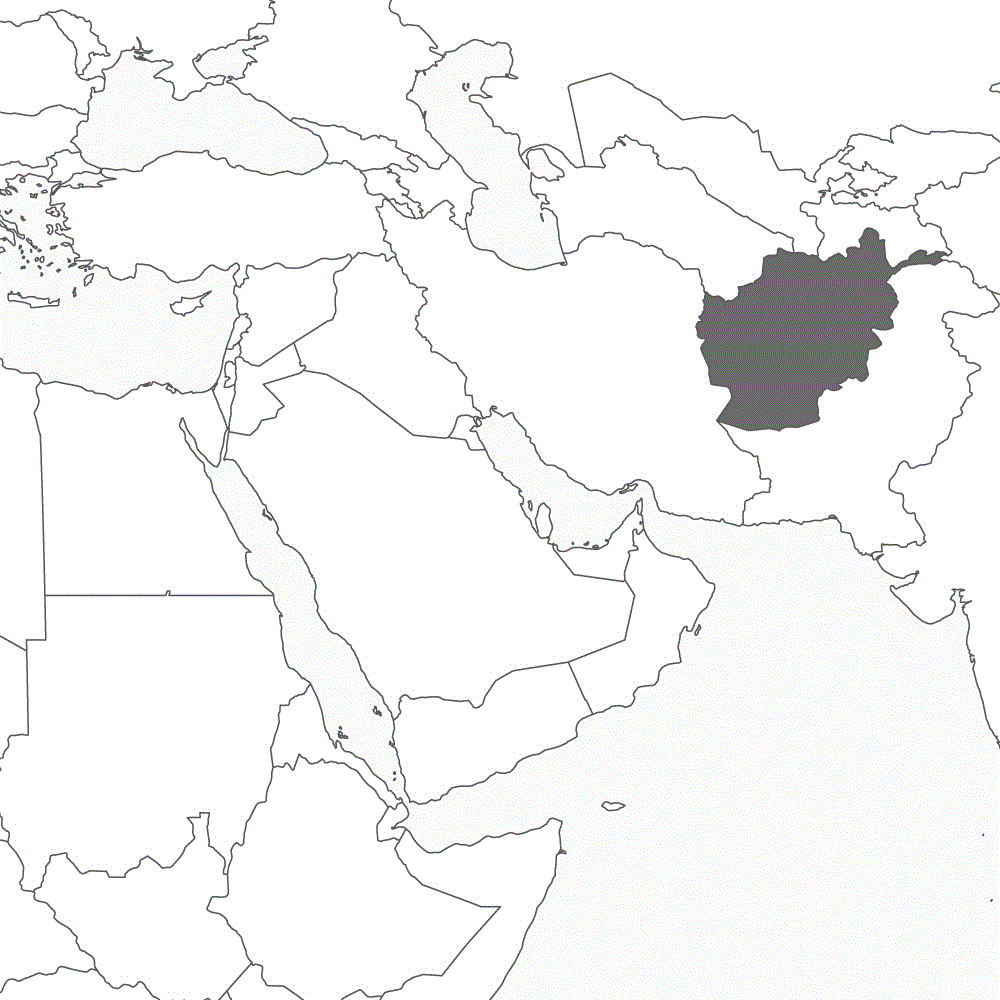Numerous additional deaths
KABUL/BERLIN (Own report) - After yet another death of a German soldier during a bomb attack in Afghanistan, the federal government consistently denies being involved in an armed conflict of international dimension. The soldier, who was part of the occupying army and who was the victim of a guerrilla attack last Monday, is the eighteenth member of the ISAF troop who was flown out from Kabul in a coffin by the German armed forces. Information on the deaths of other members of the German special unit is being kept secret. The denial of the obvious state of war enables foreign policy in Berlin to avoid the regulation of international humanitarian law and to treat opposing combatants like irregulars. Military situation reports, which are available to this editorial, describe the real scale of conflict discussions in Afghanistan.
In the last two months alone, press reports have recorded seven suicide attacks, and since January, at least 1,500 people are said to have been killed during armed attacks.[1] The figures cover increasing clashes which hardly attract any attention in the shadow of the Iraq war but which cause unrest among NATO troops in Afghanistan. Even patrols in Kabul, by whom soldiers of the German armed forces let themselves be filmed, are now considered to be risky. Operations outside the capital, especially those carried out at night, are like suicide commands.
Warning announcements
In spite of the military discussions which the occupying forces are involved in, the minister for defence also explains that there is no armed conflict of international dimension in the areas that are occupied by the German armed forces. The lies Berlin is telling to protect itself are being proved wrong by military situation reports. The amount of occurrences between the 22nd and 28th of March 2005 ("security location Kabul and surroundings/warning announcements 2004/2005 G2 MilSichh DtEinsKtgt 7th ISAF") are exemplary but not unusual. The document, which is similar to a war journal and which is meant for the federal defence ministry, records this, among other things: "22.03.2005 19:41 Missile attack with an 8 EA 107 mm missile", "22.03.2005 19:42 Missile attack with a 4 EA 107 mm missile and a hand weapon that was fired", "24.03.2005 Shoot-out between national security forces (...) during which 13 people were arrested and one was badly injured", "28.03.2005 19:25 During the attack, two cars were badly damaged. (...) Four Afghan civilians were injured, 2 of them badly".
Lawlessness
The denial of the state of war is causing Afghan civilians to become hostages of the foreign occupied forces. In spite of article 44 of the Hague Land Warfare Convention ("A leading country at war is not allowed to force the population of an occupied area to give information on the army of the other leading country at war or about the latter's means of defence"), Afghan civilians are being asked to denounce Afghan combatants. German non-combatants (sanitary personnel) are allowed to be armed when they are dealing with Afghan civilians.[2] The virtual lawlessness in the officially declared state of peace indicates the colonial layout of events to do with the occupying army.
Reconciliation farce
Berlin is proceeding in a similar way at the Afghan parliament and province council elections. Its emergence is referred to as a "milestone on the way to a (...) democratic Afghanistan".[3] There was actually a lot of falsification at the polls. The poll results were disclosed by the Kabul administration last weekend. Warlords and assumed criminals of war acquired the privilege of becoming new parliament representatives. The Kabul economy minister, Amin Farhang, confirms that "most of the representatives (...) who were there during the civil war" made "a name" for themselves.[4] The acknowledged statement refers to people in clan alliances who fought against the former Kabul government. Farhang also concedes that "money played a large role in the elections". The Friedrich-Ebert Foundation (FES), which is close to the SPD, also reports a lot of bribery through warlords who "have become rich from drugs and weapons money": it states in the FES-analysis on the reconciliation farce that "Free and fair elections (...) did not take place (...) on the 18th of September".[5]
Ten years
It is debatable whether or not the parliament, which is under the direction of the west, will be able to take action. Farhang confirms that numerous warlord backbenchers have "unresolved issues with each other which go back a long way".[6] The minister, who spent many years in Germany as a German Academic Exchange Service (DAAD) scholarship-holder, expects support for the pro-Western government, especially from female representatives. "They (...) know that they got back their rights under our government", Farhang paraphrases the quota-order, which regulates by law the proportion of women in the parliament but which does not correspond to any cultural change of perspective at all. Military sources in Berlin confirm that the defence ministry is counting on the quick breakdown of the Kabul regime if Western troops are to retreat. Therefore, periods of occupation of up to ten years - and numerous additional deaths - are being anticipated.
[1] Todesfalle auf der Terrorstraße; Spiegel Online 14.11.2005
[2] see also Kein Krieg - kein Völkerrecht
[3] Bundesminister Fischer zu den Wahlen in Afghanistan; Pressemitteilung des Auswärtigen Amts 19.09.2005
[4] "Keine klaren Mehrheiten erkennbar"; Frankfurter Allgemeine Zeitung 14.11.2005
[5] Wahlen und Warlords - Ein Parlament und 34 Provinzräte in Afghanistan gewählt; Kurzberichte aus der internationalen Zusammenarbeit, Friedrich-Ebert-Stiftung 20.09.2005
[6] "Keine klaren Mehrheiten erkennbar"; Frankfurter Allgemeine Zeitung 14.11.2005
see also Pulverfass, Viele Tote and Wahlen im Protektorat
